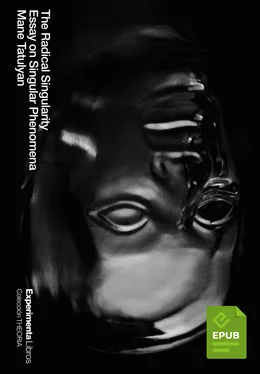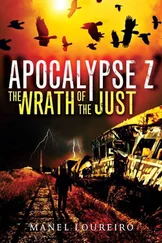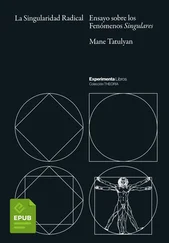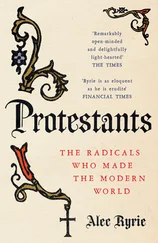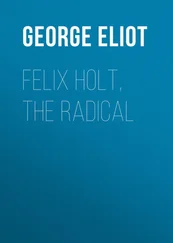Everything «post» is today crossed by the «trans». Postmodernity seems to be a transition, a dead time between Modernity (already concluded) and Posthumanism (or disappearance); it is a time of disintegration of one form towards a new stage. Postmodernity is «trans» in the sense that it rejects its origin and exceeds its nature; it is radical transmutation and the transfiguration of Modernity, not to mention transparency and transience. It is the era of transeconomics, transpolitics, transaesthetics, transsexuality and transhumanism; all of them are categories of the liberated par excellence, new forms in which all signs are released, intermingled, confused, undifferentiated, and ultimately, they are indifferent (since there are no longer rules of meaning or combination).
The world alone does not have a meaning. It is the ideas in the minds of men that, through Reason, are found in the ideas of the world. Without its ideas, the world (and everything) disorders. Modernity was a process of historical rationalisation (Weber), a new way of understanding, structuring and signifying the world (and the place of the human being in that world). For the first time, there was no longer a human being in the image and likeness of God but rather a world in the image and likeness of the human being. Doubt went from being the cause of heresy to the root of existence and specifically to being the origin of knowledge. The shock of the «methodical doubt» (which would shake several domes and altars) was not sceptical-destructive but epistemic-constructive because its purpose was to achieve indubitable evidence. If, in the Renaissance, the light of the sun had become the centre of the Solar System, than in the Enlightenment, the light of Reason had become the centre of Modernity. Reason animated the movement of the modern spirit that had just been born, and that soon would spread to all areas of Western culture. The Lights of the 18th century sought to reconstruct a form of interpretation and generation of history, not only in the philosophical and scientific fields but also in economics, politics, aesthetics – in short, in all the organs that constitute the totality of the human being. The spirit of Modernity was the expression of a radical optimism towards the world and the human being through which the meta-narratives of societies would be written. From Cartesian certainty to the dialectical movement of the Hegelian absolute, consciousness was the basis of the subject, which would become the genesis of the production of meaning (Hegelian philosophy being the consummation and absolutisation of the subject through historical dialectics). Postmodernity puts an end to meaning itself in favour of a generalised simulation that puts an end to the dialectic of meaning. We no longer know what our representation of the world is. Down with the enlightened imperialism of Reason, the strike of truth and progress, the great stories, and the monolith of Modernity! This is the toast of Postmodernity.
How does the disorder start? With oblivion. The liberated, first of all, forgets. It forgets its essence, its cause, its consequence, its memory, its future, and above all, its death. The human being, freed from its idea, proliferates uncontrollably from its genes towards infinity with its technologies, circuits, emancipations, rights, ideologies. When this anomaly of radical liberation expands and colonizes all the organs of life (even the idea of life itself), the social body will be weakened by excess useless matter, by metastatic disorder due to the loss of the idea of the organism as a whole. This same phenomenon at the cellular level is what we commonly call cancer . In general, the entire subject dies, and along with it, its own diseased cells.
What is liberated is that which proliferates beyond its ends, an insane or disorderly propagation. It is no coincidence that the Postmodern ethos is crossed by the virulent since that is the fate of everything that loses its idea or its essence. If Modernity brought anthropocentrism with it, today we have neither « ánthropos » nor the «centre» since everything is freed from its reason and its original meaning. For Newtonian mechanics, the further a body moves from its rotating centre, the more its centrifugal force increases (it is enough to free the body from its axis so that it detaches indefinitely). Our civilisation has turned itself into an accelerator of unstable and ephemeral particles that disappear in milliseconds. In our collider of history, events collide with each other, mix, become confused, proliferate, disappear. And so begins the confusion of a humanity that has no past, that, freed from all its already obsolete functions (nature, Reason, death, beauty, history, language, etc.), becomes radically anthropocentrifugal. Goodbye to Modernity, goodbye to that historical moment that maintained that singular balance between Reason and emotion, between science and art, between subjectivity and collectivity (and which has already passed into the archives of postmodern revisionism).
We are in the «post» era, but this is not a posteriority of the future but of floating, in other words, a time of transition, the swelling of the corpse of history, the feast of the Eternal Present. Augé wondered «what happened to confidence in the future? History, until the relatively recent past, had been written from the point of view of the future: restoration, progress and revolution». But today, everything is sold out: the end-of-season sales, the bestsellers, the limited editions, as well as the ideas, the hopes, the illusions, Modernity itself. We have a Postmodernism that is so low-cost that we no longer even have heroes or idols, we have influencers . We lost everything, we only have our petrified present as a category of understanding ourselves; so minimalist and environmentalist is this present that we even discarded the past and the future, dumbfounded by the ideology of the present and, as Augé writes, «gradually becoming used to the image of a world without a past and without a future».
A humanity without a past is lost since it has no traces to return or advance to; a humanity without a future exchanges progress for excrescence and is ultimately paralysed in its own disorder.
Previously, we looked back on history to find something of respect or to recycle; today, only for revisionism: the de-fossilisation of history is done to finish it off via the vertigo of the impossibility of producing it (as there is no vision, there is revision). There is a kind of generalised revisionism, especially against the Age of Enlightenment, which leads intellectuals (such as Habermas or Pinker) to come to its defence since it has become a historical event in danger of extinction, an already fossilised inheritance that, in addition to being defended, must also be proven . Since Nietzsche, it has become not only be necessary to unearth it and finish it off but also to reduce it to «instrumental reason» or, worse still, to elevate it to the category of myth . At this rate, one day we will wonder if Rousseau ever existed or if there was someone named Newton; all of them mythical characters in a cultural tale. We are forcibly convinced that neither Modernity nor progress really existed, that the Dark Ages were not so dark, that the Enlightenment was not so bright, that it was utopian but that it marked the beginning of the murder of God. The religious neoconservatives accuse it of secularisation, individualisation, corruption and hedonism (which is nothing more than their own historical resentment at the banishment of God’s authority). There is total and fatal amnesia, which will leave us no choice but to rename Postmodernity or rewrite the history manuals. We erase humanism from history with revisionism, and humans, with robots, whereupon humans remain suspended in an intermediate stage between fossils and machines.
Читать дальше
